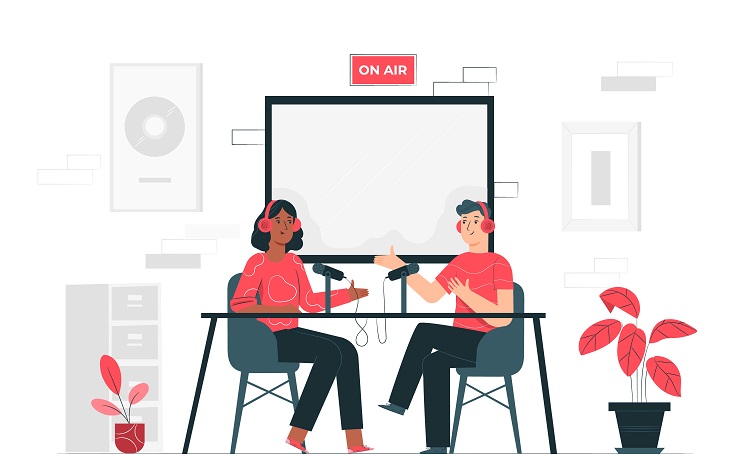Professional growth often thrives outside the typical office environment. Skills acquired in unconventional settings can transform how people approach challenges in their careers.
In an era shaped by AI, automation, and shifting work models, adaptability has become a top priority.
By engaging in personal projects, hobbies, and community activities, professionals can cultivate abilities that directly benefit their careers.
Valuable, transferable business skills are waiting to be discovered in the most unexpected places.
Skill #8 – Resilience & Perspective from Non-Work Passions

Pursuits unrelated to a profession often provide renewed mental energy and valuable perspective.
Activities like hiking, martial arts, or organizing a fantasy football draft create opportunities to face challenges in low-stakes settings while still demanding focus and adaptability.
- Coping with setbacks and recovering quickly
- Maintaining focus under unpredictable conditions
- Recognizing the value of patience in achieving long-term goals
- Seeing challenges from alternative viewpoints
- Applying lessons learned in leisure activities to professional problems
By building resilience in personal pursuits, professionals strengthen their ability to remain composed and solutions-focused at work.
Fresh perspective gained in these moments often sparks innovative ideas when facing complex business challenges.
Skill #7 – Creativity & Innovation from Passion Projects

Personal creative projects can sharpen problem-solving abilities and encourage innovative thinking.
Activities like painting, music production, or creative writing often trigger flow states, where focus and productivity reach peak levels.
This mental state fosters agility in thinking and opens new avenues for solving problems.
- Experimentation without fear of failure
- Adapting creative concepts to different formats or needs
- Recognizing patterns and generating fresh ideas quickly
- Managing time effectively while pursuing creative goals
- Translating artistic vision into actionable steps
By engaging in passion projects, professionals build a habit of approaching challenges with originality.
That habit can prove invaluable when developing strategies, designing products, or crafting innovative solutions at work.
Skill #6 – Leadership & Mentorship through Skill-Based Volunteering

Offering professional expertise to nonprofits, schools, or community groups is a powerful way to strengthen leadership and mentoring skills.
Limited resources often require volunteers to think creatively and make strategic decisions quickly, testing their ability to adapt in real time.
- Guiding teams toward common goals despite resource constraints
- Motivating individuals with varied skill levels
- Practicing clear and inspiring communication
- Making informed decisions under pressure
- Building trust through consistent support and feedback
The experience of leading or mentoring in these environments boosts confidence and equips professionals with the skills to inspire others in their primary careers.
Skill #5 – Networking and Collaboration in Online Communities

Online communities have transformed into powerful platforms for building relationships and exchanging ideas with professionals across industries.
Active participation in mastermind circles, professional forums, or industry-specific chat groups can expand both knowledge and influence.
- Effective written and verbal communication in virtual settings
- Giving and receiving constructive feedback
- Building rapport with individuals from varied backgrounds
- Coordinating virtual group projects or events
- Identifying partnership or career opportunities through networking
Engaging meaningfully in these spaces encourages adaptability and helps develop the skill of connecting with people who bring different perspectives.
Such exposure to varied approaches can be invaluable when tackling unfamiliar challenges in a professional role.
Skill #4 – Project Management from Personal Life Organization

Managing personal responsibilities can serve as a proving ground for professional-level project management skills.
Planning a wedding, organizing a large move, or managing a home renovation involves multiple tasks, deadlines, and resource considerations similar to corporate projects.
Using tools like Kanban boards, productivity apps, and detailed calendars builds efficiency and accountability.
- Task prioritization and deadline adherence
- Breaking large goals into manageable steps
- Allocating resources effectively
- Monitoring progress and adjusting plans when necessary
- Coordinating multiple stakeholders or participants
Applying these organizational methods at work can significantly improve productivity and reduce wasted effort.
The discipline gained through personal life organization fosters confidence in handling complex, multi-phase projects in a professional setting.
Skill #3 – Emotional Intelligence from Mental Health Practices

Practices such as mindfulness, journaling, and meditation help cultivate self-awareness, empathy, and emotional control.
These methods make it easier to navigate high-stress situations and maintain composure during professional conflicts.
Emotional regulation plays a major role in effective leadership and fosters healthier workplace relationships.
- Active listening and empathetic communication
- Recognition and management of personal emotional triggers
- Constructive conflict resolution
- Patience during challenging interactions
- Building trust with team members through consistent behavior
Professionals who make time for mental wellness activities often lead teams with clarity and compassion.
They respond to challenges without overreacting and inspire others to maintain composure under pressure.
Such qualities help create an environment where collaboration thrives and productivity remains steady even during demanding periods.
Skill #2 – Strategic Learning via Virtual Courses & Workshops

Virtual courses and workshops offer a flexible yet structured way to grow professionally without needing a traditional classroom environment.
They make it possible to learn in areas such as coding, business strategy, design, or creative writing while adapting the schedule to personal needs.
Success in this environment demands focus, strong self-discipline, and goal-oriented planning.
- Time management for self-paced progress
- Goal setting and tracking achievement
- Independent problem-solving without direct supervision
- Application of theoretical concepts in real projects
- Resourcefulness in finding supplementary materials
Structured online learning not only builds technical expertise but also strengthens the ability to follow through on commitments.
By consistently meeting self-imposed deadlines and seeking practical ways to apply new skills, professionals gain confidence in adapting knowledge to real-world challenges.
Skill #1 – Entrepreneurial Thinking Through Side Projects

Running a small online store, for instance, requires learning how to handle marketing strategies, customer interactions, and operational logistics simultaneously.
Risk management becomes second nature when every decision has a direct consequence.
Creativity emerges in moments where quick, innovative solutions are the only path forward, while problem-solving skills sharpen through repeated exposure to new obstacles.
- Marketing and branding development
- Customer relationship management
- Budget allocation and resource planning
- Operational process improvement
- Adaptability during unexpected challenges
Entrepreneurial thinking also flourishes in environments where self-motivation is the driving force. Deadlines are self-imposed, budgets are often tight, and choices directly influence success or failure.
Managing a side hustle mirrors the complexities of running a company, albeit on a smaller scale.
The Bottom Line
Valuable skills can be cultivated in places far removed from traditional work settings.
Activities pursued in personal time can transform career capabilities when approached intentionally.
Choosing one outside-the-office pursuit to focus on this month can spark new growth, open fresh opportunities, and lead to lasting professional advantages.


